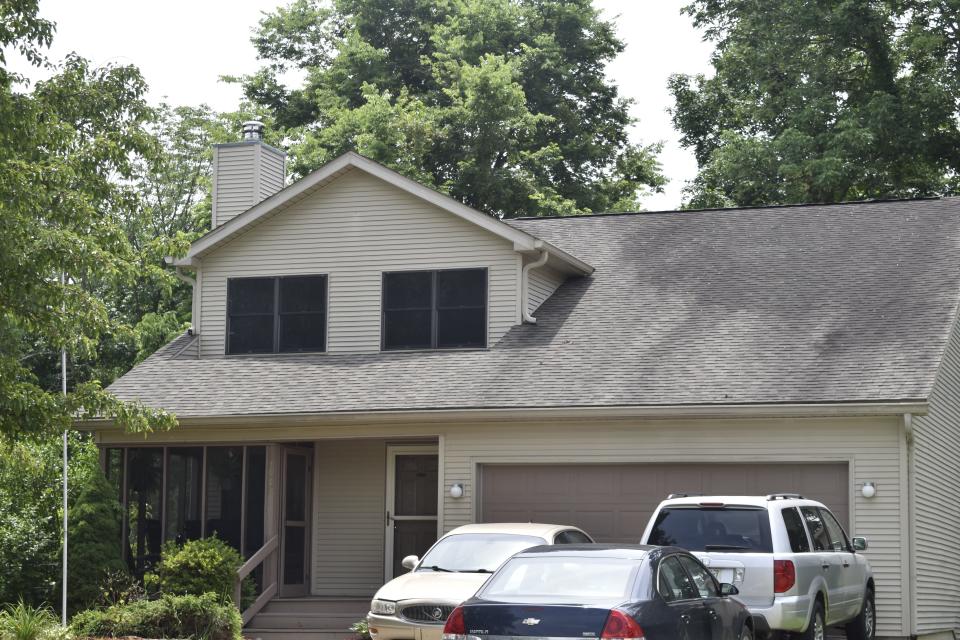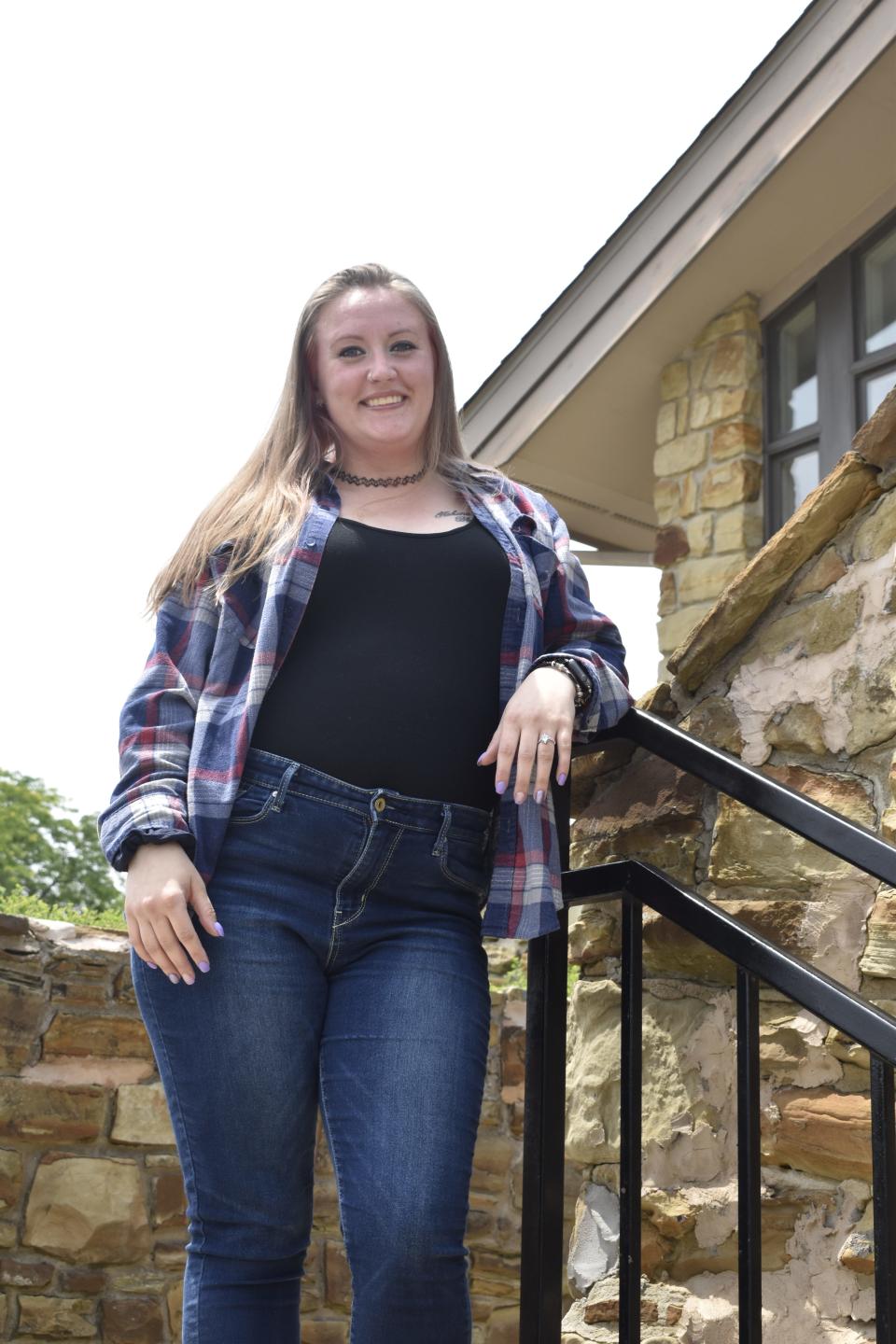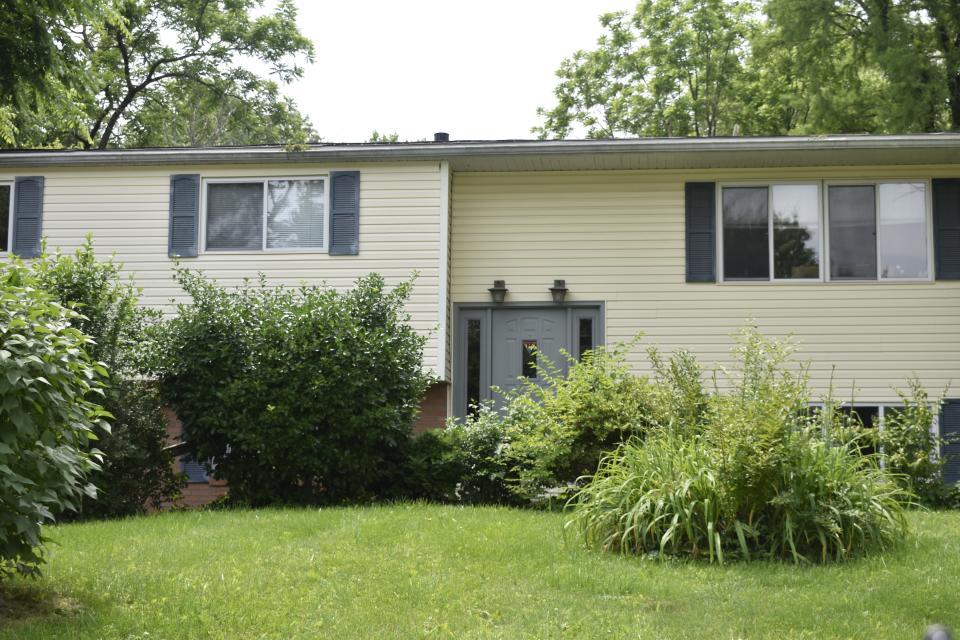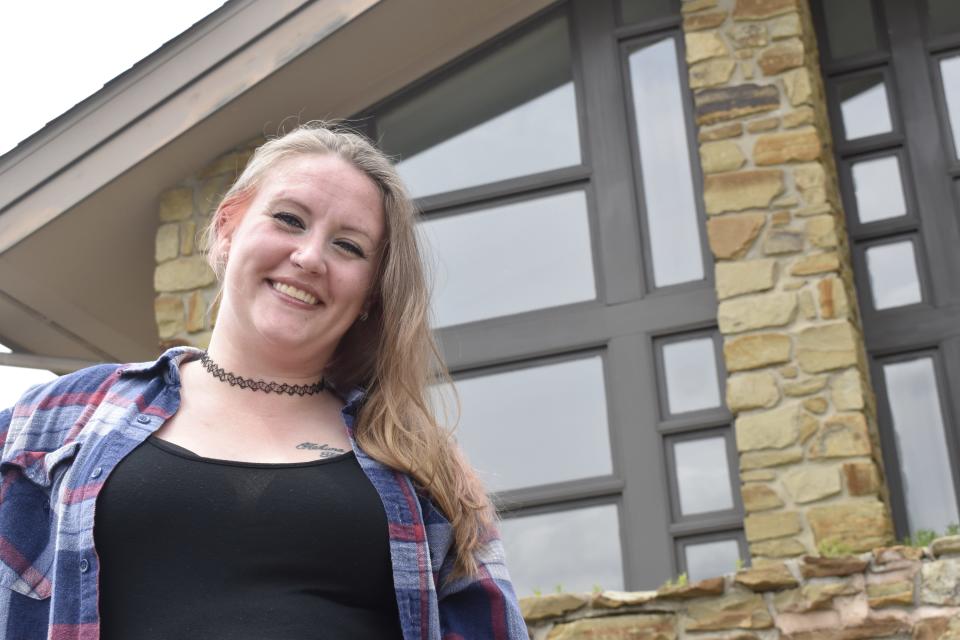Drug recovery houses in Bloomington neighborhoods part of treatment network
Six houses in Bloomington are home to men and women overcoming addiction, part of an organized treatment network that offers independent housing to help people regain their footing.
The 49 Oxford House residents live together, seven to 10 per house. Each household is considered a family under federal housing codes. The sober-living homes in city neighborhoods operate as nonprofits, exempt from local limits on the number of unrelated individuals allowed to live under one roof.
The Oxford House transition model was started with one home in Maryland in 1975. There are now 68 in Indiana, and more than 2,200 worldwide in 45 states, Canada, Australia, England and Ghana.
Each house has a charter with the organization, a franchise of sorts, and is financially independent.
More: With nowhere to place homeless youth, Stepping Stones plans to end supportive housing
A local initiative called Courage to Change oversees four other sober-living transitional houses in Bloomington, two for men and two for women.
The two organizations share a philosophy and goal: to support people battling substance use disorder as they establish sobriety and move toward a stable life free from drugs and alcohol.

What Oxford House offers
Alan Thompson, 58, a Bloomington native, was released from prison last November. He's one of 10 men living at Oxford House Nova Hayden, a 3,566-square-foot home in a northside Bloomington neighborhood purchased in October 2021. An Austin, Texas, man bought the house for $340,000 and opened the sober living residence with an Oxford House charter.
Two decades ago, Thompson was sentenced to 23 years in prison for driving recklessly under the influence of drugs and killing a man in his early 40s who left behind a wife and six children. Thompson caught a break and was released after just six years. He went back to prison when he got picked up again for driving while intoxicated. He's out now, and works at Cook Medical.

Kaylee May, 29, spent nine months in an Oxford House in Texas when she was released from jail there. Then she came home to Bloomington and lived seven months at Oxford House Maya for women on the east side. Indianapolis-based YANA LLC bought the five-bedroom, 2,286-square-foot house in May 2019 for $221,000 and established it as an Oxford House.
May got mixed up with the wrong people, and with heroin, and was arrested in Texas for dealing drugs. Her parents spent their life savings to bail her out of jail, but she kept violating her probation and getting sent back. Her mother took guardianship of May's son so he would have a safe place to live. May finally went into rehab after nearly dying from a heroin overdose. She works at the Indiana Center for Recovery, helping people who are where she's been.
Life in Oxford House residences
Oxford House residents work and pay their own way, taking on duties and expenses. Each home has officers in charge of household finances and operations. Democratic principles apply. For instance, a resident will be asked to leave if they relapse and a majority of the others vote to evict them.
Closed on weekends: Staffing, safety and funding issues to close Shalom Center on weekends
"An Idea Based On a Sound System For Recovering Alcoholics and Drug Addicts to Help Themselves," the Oxford manual says. "Housing, fellowship, self reliance, self respect for recovering individuals."
Thompson attends Narcotics Anonymous meetings and volunteers at the Community Kitchen.
"Do what you have to do to combat the disease," he said. "Pick yourself up and surround yourself with people trying to be clean and try to project yourself into the future."
Oxford House residents are expected to attend 12-step meetings and embark on a plan for living sober.
"Down in Texas, the girls were like, 'This is how you stay sober, this is how it works. You have to work the 12 steps, you have to have a spiritual life with God or yourself or the universe.' You've got to ground yourself in something," May said.
According to the Oxford House charter, any recovering alcoholic or drug addict can apply for residency at an Oxford House by calling and being interviewed by the existing house members. There are houses for men, women and single parents with children.
There's no time limit for a person in recovery to stay at an Oxford House, as long as they abstain from drugs and alcohol, work and pay their share of household expenses. Residents often stay a year, or longer, before moving on to living on their own.
"I have three years and three months clean on the eighth of June and I'm doing everything I can do to stay that way. They closed my DCS (Department of Child Services) case last year and I'm still in contact with my caseworker and the CASA worker," May said, "because they never gave up on me."

How the houses function
Josh Riley is the Oxford House regional outreach worker who oversees the 17 women and 32 men living in Bloomington's six houses — named Sage, Maya, Libra, Eden Coe, Nova Hayden and Ryder — and two in Columbus.
Indiana also has two Oxford Houses in Terre Haute, seven in Evansville, four in Lafayette, three in South Bend, six in Fort Wayne and 18 in Indianapolis.
Part of settlement: Bloomington, Monroe County back in opioid settlement, stand to gain $4.8M
Riley said there's no paid house manager, no one on site to oversee residents who are expected to be accountable to one another. "We are not a program and treatment facility. We are a single-family home with a set of recovery guidelines," he explained.
A 1995 U.S. Supreme Court decision in a case involving a zoning challenge to an Oxford House in Washington defined recovering addicts living together in a house there as "handicapped" under federal law.
That means they are protected under the federal Fair Housing Act and must be granted reasonable accommodations to support their recovery and be treated as single families for zoning purposes.
Perry Township Trustee Dan Combs and his staff looked into the Oxford House model when residents started coming to the trustee's office seeking money to help pay rent. He said state law is clear about the township's obligations as far as rental assistance, and he doesn't think think Oxford House residents qualify for aid.
Combs said state law defines residency requirements for assistance, which excludes people "in a penal institution, public or private charitable or benevolent institution, hospital or fraternal home."
The intent, he said, is to keep people in townships that have large institutions such as state hospitals, prisons and sanatoriums "from becoming the responsibility of the taxpayers of the townships those institutions were located in."
With drug treatment options in Bloomington expanding, more people are moving to the city, then seeking the trustee's financial assistance to live in an Oxford House.
"As Bloomington promotes a brand for treatment and rehab for southern Indiana, this becomes an important release valve," Combs said. "We have created literally thousands of treatment slots in the past few years for all comers. By this law, townships are only responsible for our own."
Riley said Oxford House residents deserve the same services others living in the city receive.
"Oxford House is basically for people who are not quite ready to live on their own yet, a last step down before independent living," Riley said. "Learning how to start over, as a group, sometimes advice and experiences are more well received when they come from a peer group rather than from an authority."
Living with men who, like him, have pasts that bring nightmares is a kind of therapy for Thompson. "This is the sort of place that holds people accountable to themselves, and that's different from someone coming in from the outside telling you what to do," he said.
How the homes were started
The Oxford House manual states that charters are granted to people who themselves have beaten addiction. "Two or more recovering alcoholics can apply for a charter from Oxford House, Inc., by completing an application for a charter or simply writing a letter containing the pertinent information to Oxford House World Services," the guide states.
But that's not how Oxford Houses got started in Bloomington, where four are owned by Scott Caulfield's Lean On Me LLC. He grew up in Bloomington, lives in Westfield and owns Arbutus Properties in Bloomington, which has seven student rental houses.
Caulfield said Oxford House officials came to him and a business partner in 2017 seeking inroads and access to the Bloomington housing market, where he already was an established buyer. He claims a connection to addiction through a cousin who had a gambling problem and died from suicide.
He has since purchased four houses through Lean On Me LLC in Bloomington and is branching out in eight other Indiana counties using Oxford House charters, serving as landlord for the independent homes.
Caulfield said instead of year-long leases with students, his LLC has three- to five-year leases with Oxford House residents. High student rental costs benefit landlords, but so do homes with as many as 10 occupants paying rent. Excess cash is expected to be diverted, under terms of the organization's charter, to fund the purchase of more Oxford Houses.
"Once a cluster of houses is developed in an area, it becomes easier to expand because of help from existing Oxford Houses," the organization's 2021 annual report states.
For Caulfield, it's a way to make money and do good at the same time.
"It's something that has a financial return and that makes sense, and we've connected with some other investors and are working with Oxford to help meet the need where it exists," Caulfield said.
"Things are not always as smooth as they would be if we were to rent the standard way. This is sometimes more hands on."
Perception of others
Caulfield acknowledges negative responses in some neighborhoods from people who aren't happy living next to recovering addicts. Oxford House residents know it, too.
"We had some Homeowners' Association problems, some neighbors were concerned. One even sold their home. Now, one of the neighbors who was complaining has one of our guys doing their yard work," Thompson said. "Perceptions can change."
Still, the welcome mat isn't always out for Oxford House residents, even though they are paying their portion of the cost to live in the neighborhood.
The lease between Oxford House Ryder and Lean On Me shows the current monthly rent for the home is $2,900. That would be split among 7 or 8 residents who also share utility costs and food bills.
"We are pushing out into uncharted territory and there is a stigma attached. 'Why would you want to rent to people like that?' But, having done this for awhile, I can say our Oxford Houses are maintained better than a lot of our student rentals," Caulfield said.

May recently was named Woman of the Year for her region at an Oxford House annual meeting. She was touched.
"I have done so many bad things in my life, and to hear someone say out loud the things I've done to get this far, and to choose me ..." she said.
Caulfield said people who make mistakes deserve a chance to start over. A stable place to find footing.
"These are people who have made mistakes and had issues in their past lives and are trying to get back on track. They're in recovery. They need a place to live."
Thompson expects no mercy. "I was using and I killed a person in a car wreck. It was horrible then and it's still horrible today. We have to live with what we did and make amends. It's it not something that ever goes away. You live with it, stigmatized as this bad person."
Contact reporter Laura Lane at llane@heraldt.com, 812-331-4362 or 812-318-5967.
This article originally appeared on The Herald-Times: Oxford House recovery homes in Bloomington offer sober living

